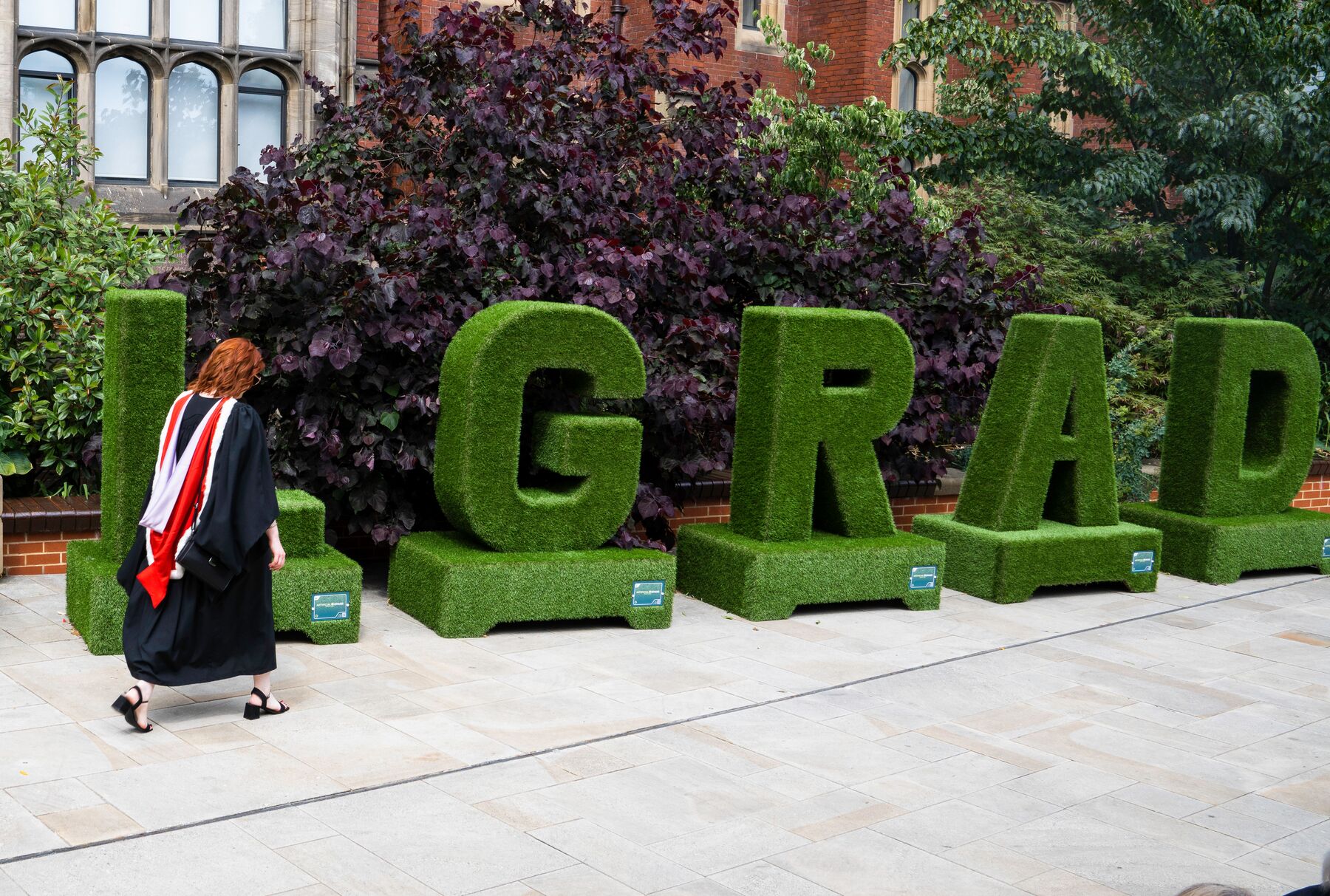Shania Rowe
Name: Shania Rowe
Course: BSc (Hons) Biomedical Sciences
Year of graduation: 2025
Current role, organisation and industry: Master of Public Health Student
Why did you choose to study at Newcastle University?
I chose to study at Newcastle University because it combines academic excellence with a strong student community. As a Russell Group university, it has an outstanding reputation for research-led teaching, and the course in Biomedical Sciences stood out to me for its unique modules and opportunities, which align closely with my career ambitions. I was also impressed by the university’s facilities and the strong focus on employability and real-world experience, which I believed would prepare me well for the future. On top of this, receiving a fully funded scholarship for Newcastle not only enabled me to study here but also motivated me to make the most of every opportunity that was given to me. Beyond academics, I was drawn to Newcastle as a city – it is vibrant, friendly, and affordable, making it an ideal place to grow both personally and academically.

What did/do you love about Newcastle University?
What I love most about Newcastle University is the strong sense of community and the people who make it such a welcoming place. I’ve built lasting friendships and meaningful connections that have made my time here special. There has also been so much to get involved with, from societies and events to opportunities that support both personal and professional growth. Combined with the vibrant and friendly atmosphere of the city and the accommodation I was in, these experiences have made Newcastle a place where I’ve felt I truly belong.
What did you enjoy most (or least!) about your course?
What I enjoyed most about my course was its diversity, as there was at least one module that appealed to everyone. I particularly valued the way the course was designed to build critical and analytical thinking, which is essential for both further study and future careers. The variety of modules also exposed me to different areas within biomedical sciences, helping me refine my interests.
On the other hand, personally I found that there were perhaps a few too many modules on Immunology and Genetics, and overall, it was a content-heavy course that sometimes felt overwhelming. However, these challenges instilled discipline in me and taught me to persevere, stay open-minded and how to manage my time effectively under immense pressure, which I see as some of the most valuable skills I have gained.
Tell us a little bit about career journey. How did you get into what you do now?
My career journey began with my interest in science during school, which led me to study Biomedical Sciences at Newcastle University. The course gave me a strong foundation in critical thinking, problem-solving, and research skills, and I particularly enjoyed the hands-on lab work. During my final year, I discovered my real passion when I took a module on Health and Illness and Epidemiology which are key topics within the public health realm. These modules focused on preventing disease and addressing the health needs of populations. I found the content fascinating and engaged with it so well that being assigned my dissertation topic within the public health field further solidified my interest. Alongside my studies, I volunteered with organisations such as HealthWatch and secured an internship with the Alzheimer’s Society, where I was able to deepen my understanding of public health in practice and gain valuable experience. These academic and professional experiences together confirmed my decision to pursue a master’s in public health, as I realised this is the field where I can combine my scientific background with my interest in improving population health outcomes.
What do you enjoy most about your current job?
Although I have a few more weeks before I start my master’s studies yet, I am most looking forward to exploring health inequalities in underrepresented communities and analysing various statistical and quantitative methods. I am also excited to apply the skills and knowledge I gained from my Biomedical Sciences degree at Newcastle University, translating what I have learned into practical solutions and real-world public health contexts.
What is the biggest challenge you have faced in your career journey?
During the second and final years of my undergraduate degree, I faced several personal extenuating circumstances that disrupted my studies. Despite these challenges, I remained determined to succeed, developing resilience, strong time-management, and organisational skills along the way. By seeking support when needed such as extending deadlines and carefully planning my workload, I was able to complete my degree successfully. These experiences taught me how to stay motivated under pressure, adapt to unexpected situations, and overcome obstacles, which are skills that will be invaluable in my future studies and career in public health.
How did your course and experiences at Newcastle University prepare you for your current role?
During my time at Newcastle University, I actively explored opportunities to develop skills relevant to my future career. I served as a student representative for my cohort, acted as a peer mentor for two years to help first-year students settle into university life, and became a tutor, which allowed me to further develop my communication and teaching skills. Additionally, I volunteered with DeafBlind UK and worked within the NHS sector, both of which provided valuable insight into public health and reinforced my interest in pursuing a career in this field. These experiences, combined with the academic rigour of my Biomedical Sciences degree, have prepared me well for further study in public health.
What other things did you do at University which helped you to get where you are now?
Getting involved with different sports clubs, such as Netball and Athletics, as well as a range of societies, was a great way to make friends and enjoy my downtime at university. Participating in these activities not only helped me relax and recharge, but also developed my teamwork, communication, and social skills. Engaging with new people in these settings made me more confident in interacting with others, which has been invaluable in both my professional and personal development as networking is essential in all career pathways.
What one piece of advice do you wish someone had given you when you first started?
One piece of advice I wish I had received when I first started university is to always trust your instincts and follow your own path. It’s easy to get distracted by what others around you are doing, but it’s important to focus on what you want and the steps you need to take to get there. Additionally, be realistic with the expectations you set for yourself. Some people start university without a clear plan, while others have a definite path, and it’s completely normal for your goals to change as you learn and grow. Finally, always step out of your comfort zone. Trying new things can be nerve-wracking, but it’s through these experiences that you gain confidence, seize opportunities, and discover what you’re truly capable of.
What support do you wish you had when you first started? And are there any resources that you would recommend to people?
When I first started university, the support that really made a difference for me came from the Disability Support team. They genuinely care about students’ success and implement strategies to help you thrive throughout your studies. I also found the Careers Service incredibly helpful (a big shoutout to Kate on the Careers Team) especially when you hit a roadblock or need a second pair of eyes on your CV. I would highly recommend getting to know key points of contacts early on, such as Student Wellbeing and the Student Union, so you’re aware of the support and resources available whenever you might need them.
